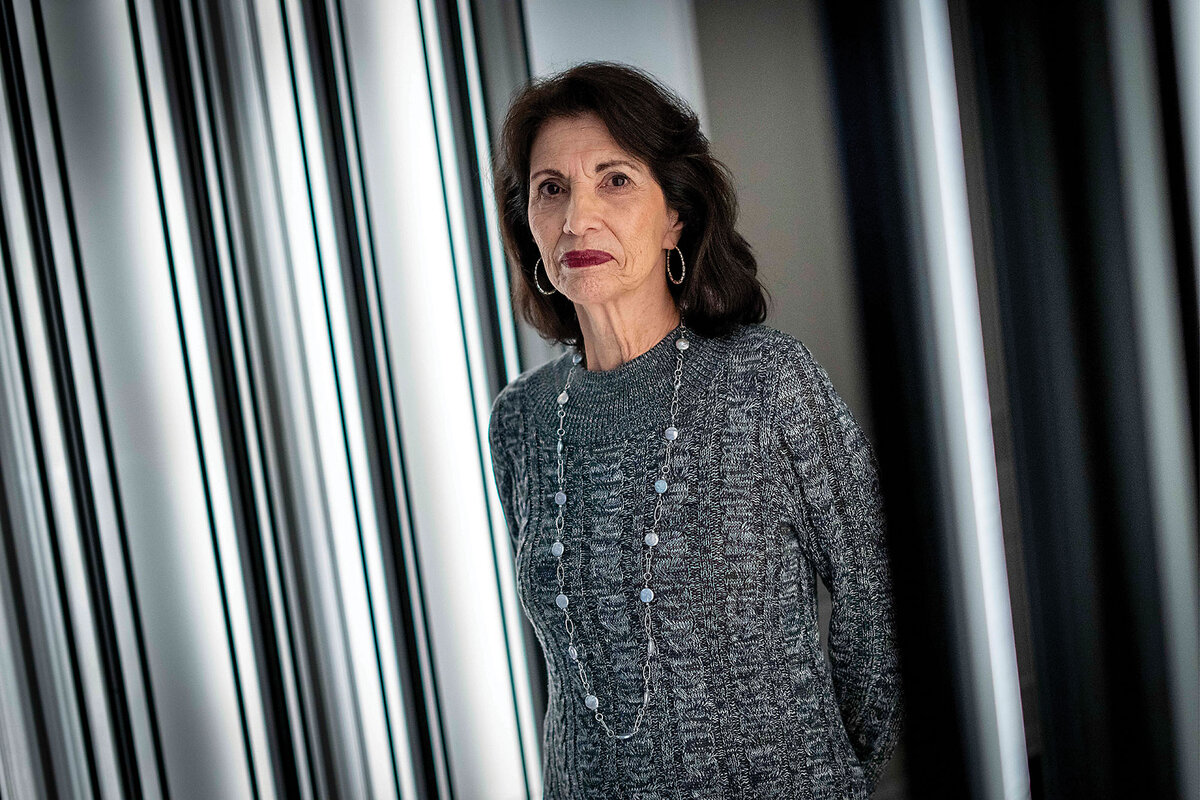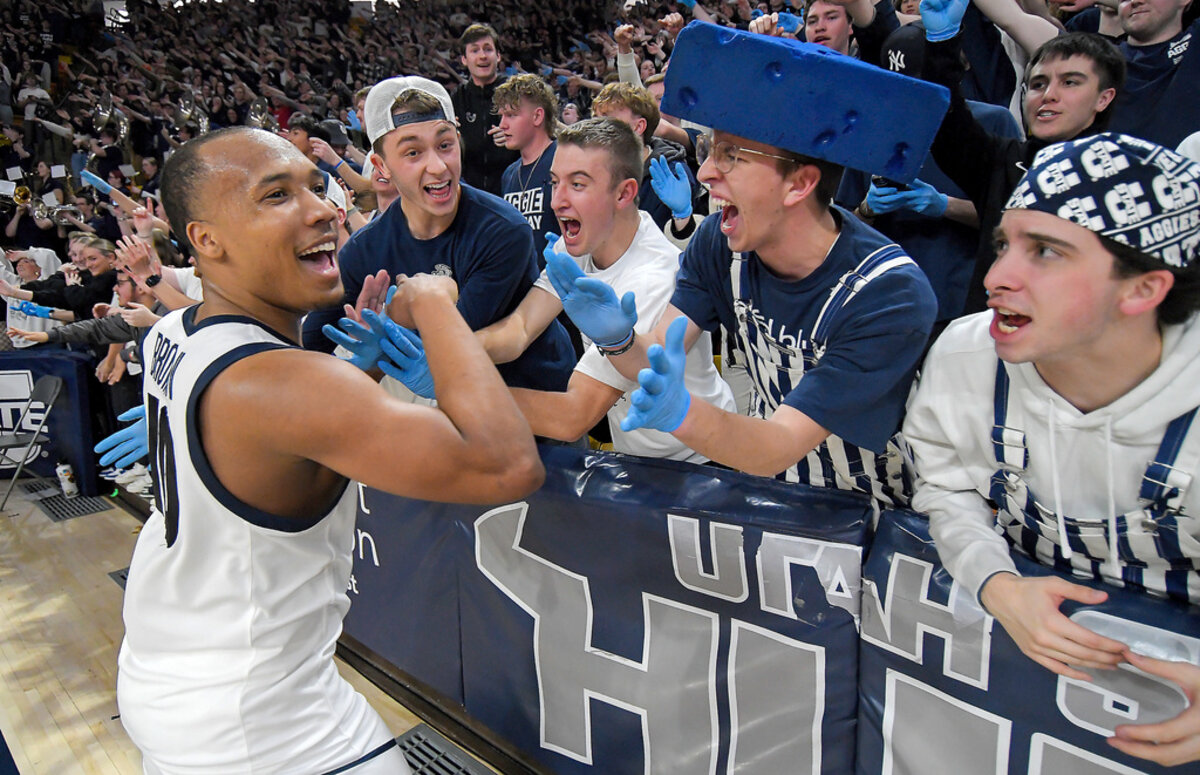Authoritarian China tops a recent survey, while the United States is nearer the bottom. The finding points to new dynamics in global trust. Here, we explore that trend and others in six graphics.

Why is Christian Science in our name?
Our name is about honesty. The Monitor is owned by The Christian Science Church, and we’ve always been transparent about that.
The Church publishes the Monitor because it sees good journalism as vital to progress in the world. Since 1908, we’ve aimed “to injure no man, but to bless all mankind,” as our founder, Mary Baker Eddy, put it.
Here, you’ll find award-winning journalism not driven by commercial influences – a news organization that takes seriously its mission to uplift the world by seeking solutions and finding reasons for credible hope.
Explore values journalism About usMonitor Daily Podcast
- Follow us:
- Apple Podcasts
- Spotify
- RSS Feed
- Download
 Mark Sappenfield
Mark Sappenfield
The Russian presidential election finishes this weekend. No, it will not be a nail-biter. Earlier this week, Fred Weir looked at how Russia has slowly choked many of its last vestiges of democracy. Today, he looks at who’s running. Who runs against Vladimir Putin?
Already a subscriber? Log in
Help fund Monitor journalism for $11/ month
Monitor journalism changes lives because we open that too-small box that most people think they live in. We believe news can and should expand a sense of identity and possibility beyond narrow conventional expectations.
Our work isn't possible without your support.
Today’s stories
And why we wrote them
Graphic
( 3 min. read )
Today’s news briefs
• Gaza cease-fire proposal: The United States has circulated the final draft of a United Nations Security Council resolution that would support international efforts to establish “an immediate and sustained cease-fire” in the Israel-Hamas war.
• Brazilian election plot reported: According to judicial documents, top Brazilian military leaders told police that former President Jair Bolsonaro presented to them a plan to reverse the results of the 2022 election he lost.
• Special prosecutor leaves Georgia case: A special prosecutor who had a romantic relationship with Fulton County District Attorney Fani Willis has withdrawn from the Georgia election interference case against former President Donald Trump.
• Aid nears Gaza: A ship carrying 200 tons of aid is approaching the coast of Gaza to inaugurate a sea route from Cyprus and could arrive March 15.
• Chuck Schumer calls out Netanyahu: U.S. Senate Majority Leader Chuck Schumer calls for new elections in Israel, harshly criticizing Prime Minister Benjamin Netanyahu as an obstacle to peace.

( 4 min. read )
Russia’s opposition once featured an array of political parties, and even some limited space for genuine critics of Vladimir Putin and the Kremlin. What remains of that today?
Podcast

In France, ‘defending the culture,’ but not all of its icons
The caricature of the libertine French male, practicing a form of predation masked as seduction, is one with deep roots and some social support. Our Paris-based writer looked at where trust in those pushing back has begun to stir. She joins our podcast to talk about her reporting.
#MeToo, French Edition
( 5 min. read )
Brazilian President Lula has put a big focus on protecting the environment, backing expensive operations to combat illegal mining and other crimes in the Amazon. But can political will come too late?

( 5 min. read )
True stories of courage give us hope. In this book, a mother’s grief and loss becomes a catalyst for helping U.S. hostages and their families.
The Monitor's View
( 2 min. read )
In just a single weekend last March, the city of Albany, New York, received a sudden revenue bump large enough to cover nearly half of its annual budget for public works. Other small cities saw similar bursts in receipts. The reason: college basketball.
Spring migrations are underway – red-winged blackbirds to the north, baseball fans to the south. Yet nothing stirs a human fluttering this time of year quite like March Madness, the annual college basketball championship tournament. Over three weeks, 134 games – 67 for men’s teams, 67 for women’s teams – will generate nearly $10 billion in economic activity in the host cities.
The tournament draws fans to places they otherwise might never go. Many have no direct connection to the teams they root for. They hop from city to city, drawn by those things that inspire joy and empathy – athletic grace, gallantry, community. Every game risks it all. One team goes on; the other goes home.
“I more often than not, find myself rooting for the underdog team,” wrote Jillian Brown, an innovation consultant at Peer Insight. “One big reason is that we can see ourselves in this team. We’ve all been confronted with uphill battles, where we’re not expected to succeed but with passion and grit, we do.”
One explanation for the appeal of college athletics lies in the purity of its pursuit. Amateurism, wrote philosopher Heather Reid at Morningside University in Iowa, is rooted in the Latin word for love, or doing something out of intention and not for external reward. College sports teach “us to transform our love for an activity into excellence,” she wrote. They engage “uncommon character virtues.” Team sports are a “shared commitment to excellence.”
Nearly half of the NCAA teams make it to the national tournament by winning their regional championships. The rest are chosen by the National Collegiate Athletic Association on Selection Sunday, which happens this weekend. Then come the brackets, as fans fill in charts predicting winners and losers from the first round to the final game.
In the 85-year history of the tournament, no one has ever filled out a perfect bracket. But the brackets amplify the unique affections nourished by sports. Former Presidents George W. Bush and Barack Obama no longer debate policy in public. Now they playfully prod each other over their tournament predictions.
Games start Tuesday. On April 8, just one team will be left standing. During that three-week interval, a new survey by OnePoll found, the average fan will spend 36 hours watching, talking, and thinking about college basketball. About the stumbles, the Cinderellas, and the shots that beat the buzzer. It isn’t hard to see why. Love of excellence is a slam-dunk.
A Christian Science Perspective
Each weekday, the Monitor includes one clearly labeled religious article offering spiritual insight on contemporary issues, including the news. The publication – in its various forms – is produced for anyone who cares about the progress of the human endeavor around the world and seeks news reported with compassion, intelligence, and an essentially constructive lens. For many, that caring has religious roots. For many, it does not. The Monitor has always embraced both audiences. The Monitor is owned by a church – The First Church of Christ, Scientist, in Boston – whose founder was concerned with both the state of the world and the quality of available news.
( 3 min. read )
Seeing ourselves and each other the way God made us opens the door to interactions filled with joy, rather than judgmentalism.
Viewfinder

A look ahead
Thank you for spending time with us this week. We’ll start next week by looking at two thorny foreign policy questions. If the United States stepped back, could Europe defend itself? And why does President Joe Biden seem so reluctant to use his leverage with Israel? We hope you’ll check back in Monday.






